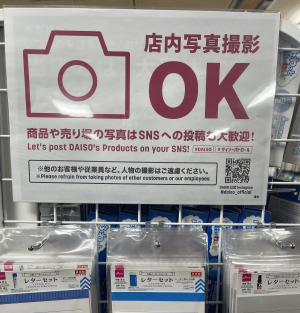Photo and Filming

Japan is a country with a rich culture and history, and it is a popular destination for tourists and foreign residents alike. As a visitor to Japan, it is important to be aware of the etiquette rules that apply to photo and filming. These rules are in place to protect the privacy of individuals and property, and to ensure that everyone enjoys their experience in Japan.
Rules
Do not take photos or videos without permission.
This includes photos of people, places, and property. If you are unsure whether or not you have permission to take a photo, it is always best to ask.
For example, if you are visiting a restaurant, it is generally considered polite to ask the waitstaff before taking a photo of your food. This is because the restaurant may have specific rules about photo and filming, or the waitstaff may be concerned about the privacy of other customers.[1]
For another example, strolling along Kyoto's traditional streets, you might encounter graceful figures adorned in vibrant kimonos - the skilled entertainers known as geisha. Their presence adds a touch of timeless elegance to the atmosphere, but remember, capturing their image without their express permission is considered disrespectful and intrusive.[2]
Be respectful of people's privacy.
Do not take photos of people without their consent, especially if they are in a private setting. For example, it is generally considered rude to take photos of people without their consent in a public place, such as a park or a train station. It is also important to be respectful of people's privacy in private settings, such as a home or a business.
Be aware of your surroundings.
Do not block people's paths or take photos that could be considered intrusive. For example, when taking photos in a crowded area, be careful not to block people's paths or get in their way. It is also important to be aware of the people around you and to avoid taking photos that could be considered intrusive.
Follow the rules of the location.
Many places have specific rules about photo and filming, such as museums and government buildings. For example, many museums require visitors to purchase a photography permit before taking photos. It is always best to check with the local authorities before taking any photos or videos.
Reasons for the Rules
There are a number of reasons why these rules are in place.
First, they protect the privacy of individuals. In Japan, people have a strong sense of privacy, and they may feel uncomfortable being photographed without their consent.
Second, the rules protect property. It is illegal to take photos or videos of copyrighted material without permission.
Third, the rules help to ensure that everyone enjoys their experience in Japan.
By following the rules, you can help to create a more respectful and enjoyable environment for everyone.
Specific Examples
Here are some specific examples of how these rules can apply to foreign residents in Japan:
In a restaurant, it is generally considered polite to ask the waitstaff before taking a photo of your surroundings. This is because the restaurant may have specific rules about photo and filming, or the waitstaff may be concerned about the privacy of other customers.
In sentō(communal bathhouses) or onsen(hot springs), as a courtesy to other bathers, please refrain from taking photos or using your phone. These spaces are meant for relaxation and privacy, and electronic devices can be disruptive.
In a public place, it is generally acceptable to take photos of people, but it is important to be respectful of their privacy. For example, it is generally considered rude to take photos of people without their consent in a crowded area, such as a park or a train station. It is also important to be respectful of people's privacy in private settings, such as a home or a business.
In a temple or shrine, it is generally prohibited to take photos or videos. This is because temples and shrines are considered sacred places, and it is believed that taking photos or videos can disturb the spirits of the gods.
It is illegal to take photos of people in police custody. This is because it is considered a violation of their privacy.
Additional Tips
Here are a few additional tips for foreign residents in Japan:
- Be aware of the cultural differences between Japan and your home country. In Japan, it is generally considered polite to be modest and respectful of others.
- Learn a few basic Japanese phrases. This will show the Japanese people that you are making an effort to learn their language.
- Be patient. Japan is a slow-paced country, so don't expect things to happen quickly.
By following these tips, you can help to make your time in Japan a positive and enjoyable experience.
